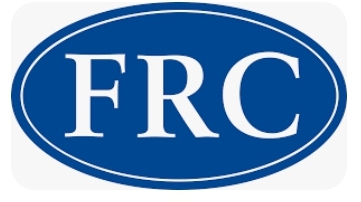In the wake of Rabiu Olowo Onaolapo’s assumption of office as the new Executive Secretary and CEO of the Financial Reporting Council (FRC), a transformative era began, signaling not only the end of business as usual but a renaissance in financial reporting in Nigeria.
With a remarkable track record, Olowo spearheaded an unprecedented 400% increase in Lagos state’s revenue from 2019 to 2023, showcasing not only his dedication to President Bola Ahmed Tinubu’s Renewed Hope Agenda but also a commitment to global standards in corporate and financial governance.
Underpinning Olowo’s tenure is a profound concern for the lack of corporate governance in both public and private entities. His strategic appointment aligns with a mission to reshape the FRC, addressing issues of fictitious financial statements and fostering transparency. This coincidental alignment positions him to usher in a new era for the agency.
Olowo wasted no time in implementing technological advancements to enhance the FRC’s efficiency. Through the application of cutting-edge technology, processes such as filings, financial statement analysis, and corporate governance reporting have been streamlined.
This not only eradicates the prevalent issues of non-submission and manipulation but also ensures compliance with global requirements.
Embracing the Digital Repository Platform, the FRC, under Olowo’s leadership, introduces the Digitisation, Operation, Excellence, Stakeholders Engagements, and Enforcement (DOSE) as a new code of conduct.
This initiative aims to modernize governance practices, allowing unrestricted access to public governance codes in 2024 and not-for-profit organization guidelines.
In adherence to the FRC Act of 2011, as amended, the council is set to enhance its capacity through staff engagement and professional development, aligning with global practices such as the International Financial Reporting Standards (IFRS) and International Public Sector Accounting Standards (IPSAS).
Looking ahead, the FRC, with stakeholder support, is steadfast in its commitment to a robust roadmap for sustainable reporting, commencing in the first quarter of 2024.
This initiative aims to restore stakeholders’ confidence, ensuring compliance with high standards mandated by the FRC Act of 2011.
Demonstrating Olowo’s commitment to accountability, the FRC has initiated sanctions against government agencies, exemplified by penalizing NIMASA with a 500M fine.
Collaborative efforts with anti-graft agencies, including the Economic and Financial Crimes Commission (EFCC), underscore Olowo’s determination to combat financial misstatements and promote transparency.
Olowo’s leadership extends beyond enforcement, encompassing advocacy and orientation programs. Collaborative engagements with government agencies and the private sector aim to educate and orient them on the new financial reporting template, aligned with the FRC Act of 2011.
With Olowo’s seasoned leadership, the FRC stands poised for a new era. Support from all quarters is crucial to realizing the objectives of this internationally exposed public officer and technocrat, ensuring the FRC’s mandate is not only met but surpassed.
Written by Abubakar Yusuf, a Public Affairs Analyst (yus.abubakar3@gmail.com).











